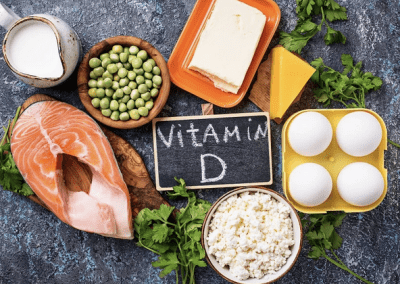As you get older, your vision tends to deteriorate. It may start with needing a pair of reading glasses. Later on, you may notice your vision becoming cloudy due to cataracts forming on the lens inside your eye. Other eye problems common in older adults are glaucoma and macular degeneration, two of the leading causes of blindness for people over 60. And if you have diabetes, you’re at higher risk for developing vision problems.
So, is poor vision — and the resulting loss of independence and seeing the people, places and things you love — inevitable as you age? Of course not. There’s plenty you can do to keep your eyes healthy.
- First, see your eye doctor. Your doctor can detect any eye disease early, when it’s easier to treat and before it can cause vision loss.
- Second, exercise regularly. Being overweight increases your risk of developing cataracts, high blood pressure and diabetes.
- Third, stop smoking. Current and former smokers have up to four times the risk of developing age-related macular degeneration than those who have never smoked.
- Fourth, wear your shades. Sunlight can damage your eyes and cause cataracts.
- Last but not least, eat a healthy diet.
Eat Right to Protect your Sight
There’s more to choosing foods for better eye health than stocking your refrigerator with a bunch of carrots. (Though carrots are a good source of beta carotene and vitamin A, two essential nutrients for eye health.)
The Age-Related Eye Disease Study (AREDS) found that certain nutrients may reduce the risk of age-related decline in eye health by 25%. Further studies agree that omega-3 fatty acids, lutein and zeaxanthin are vital for eye health.
10 Best Foods for Eye Health
Based on what we know from research, these are some of the best foods for your eyes.
1. Fish – Oily fish are rich sources of omega-3 fatty acids. Salmon, tuna, mackerel, sardines and rainbow trout offer high levels of omega-3s.
2. Nuts and legumes – Nuts are rich in omega-3 fatty acids and contain a high level of vitamin E, which can protect the eyes from age-related change. Walnuts, Brazil nuts, cashews, peanuts and lentils are all good “see food.”
3. Seeds – Chia, flax and hemp seeds are all rich sources of omega-3s and vitamin E. Try sprinkling hemp seed on your salad.
4. Citrus fruits – The antioxidant properties of vitamin C in citrus fruits fight eye-related damage by sponging up free radicals. Lemons, oranges, grapefruits and tomatoes (technically a fruit) are rich in vitamin C.
5. Leafy green vegetables – Spinach, kale, collard greens and Swiss chard are rich in lutein and zeaxanthin, and a good source of vitamin C.
6. Carrots – Like other orange vegetables, carrots are high in beta carotene, which your body converts to vitamin A, important for eye health.
7. Sweet potatoes – These are rich in beta carotene and a good source of the antioxidant vitamin E.
8. Beef – Rich in zinc, beef may slow the progression of macular degeneration. Chicken breast and pork loin also contain zinc, but at lower levels.
9. Eggs – Lutein and zeaxanthin are found in egg yolks, plus eggs are loaded with protein, vitamins and minerals.
10. Water – Staying hydrated can help your body produce a healthy volume of tears, which is important to prevent dry eyes.
Our Focus Is on Your Health at Sedgebrook
Maintaining a healthy lifestyle isn’t just good for your eyes, it’s essential for enjoying a high quality of life. Especially as you grow older. It’s why we offer a comprehensive wellness program at Sedgebrook.
Our fitness center offers a variety of classes — everything from water aerobics to yoga — to help residents maintain their fitness. Our culinary team works with a dietitian to create healthy, well-balanced meals that are nutritious and scrumptious. Activities such as drum circles and glee clubs keep residents connected and energized. And if you need to see the doctor, our on-site clinic offers one of the best concierge medical services around.
To learn more about our holistic approach to health, visit our Wellness page. And see for yourself how Sedgebrook can help you thrive.



